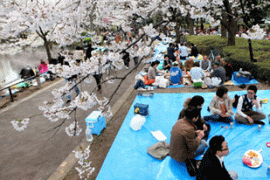Japan business confidence wanes
Influential tankan business survey dips to 4-year low in shadow of US slowdown.

Businesses have indicated they plan to cut capital spending by 1.6 percent in the fiscal year that started with the release of Tuesday’s report.
In some alleviation of bad economic news, Tokyo stocks rose sharply on Tuesday morning as investors were optimistic about the flow of new funds into the market at the start of Japan‘s new fiscal year.
The benchmark Nikkei-225 index gained 1.04 per cent on Monday after sliding 2.3 per cent on Tuesday.
The rise followed an overnight report showing US business activity shrank less than expected, offering encouragement that Japan‘s biggest export market may hold up.
It also comes after the US treasury revealed plans for a massive overhaul in regulation of the US financial sector in an effort to mitigate the fallout from the subprime mortgage crisis.
Stalling economy
But Japan‘s cabinet ministers have stuck to the view that the world’s second-largest economy is stalling, and remained cautious.
“I am very worried about declines in capital spending plans, particularly for big manufacturers,” Hiroko Ota, Japan’s economics minister, told reporters on Tuesday.
“The key to the outlook for Japan‘s economy is how big and how long the US economic slowdown would be,” she said.
Japan‘s economy grew a surprisingly strong 0.9 percent in the last quarter of 2007, but economists expect growth to slow in 2008 amid fears that the US economy is heading into recession.
The US is Japan‘s second largest trading partner after China. The tankan, meaning short-term economic outlook, recorded the bleakest capital spending reading for a March tankan since 2002.
Japanese companies, however, tend to be cautious on capital spending at the start of the business year and gradually revise up their plans as the year progresses.
Fears have been looming about the health of the Japanese economy as Japan remains so dependent on exports for growth that a weak dollar is likely to further dent already poor profits at some companies.
The dollar fell below 96 yen in March for the first time in more than a dozen years.
‘At risk’
“The outlook for the Japanese economy and growth through the first half of the year is clearly at risk now,” said Glenn Maguire, chief economist for Asia at Societe Generale in Hong Kong.
“It looks inevitable that the economy will experience a mild recession,” Maguire told AFP.
Two key drivers of Japanese growth – exports and business investment – were faltering, but the recession should be quite shallow because companies are in better shape than during previous slowdowns, he said.
Business sentiment is still considerably higher than the negative levels recorded during Japan‘s last recession.
The large manufacturer survey plunged to minus 51 in 1998, when Asia was in the throes of a currency crisis and the government had to buy failed lenders including Long-Term Credit Bank of Japan Ltd.